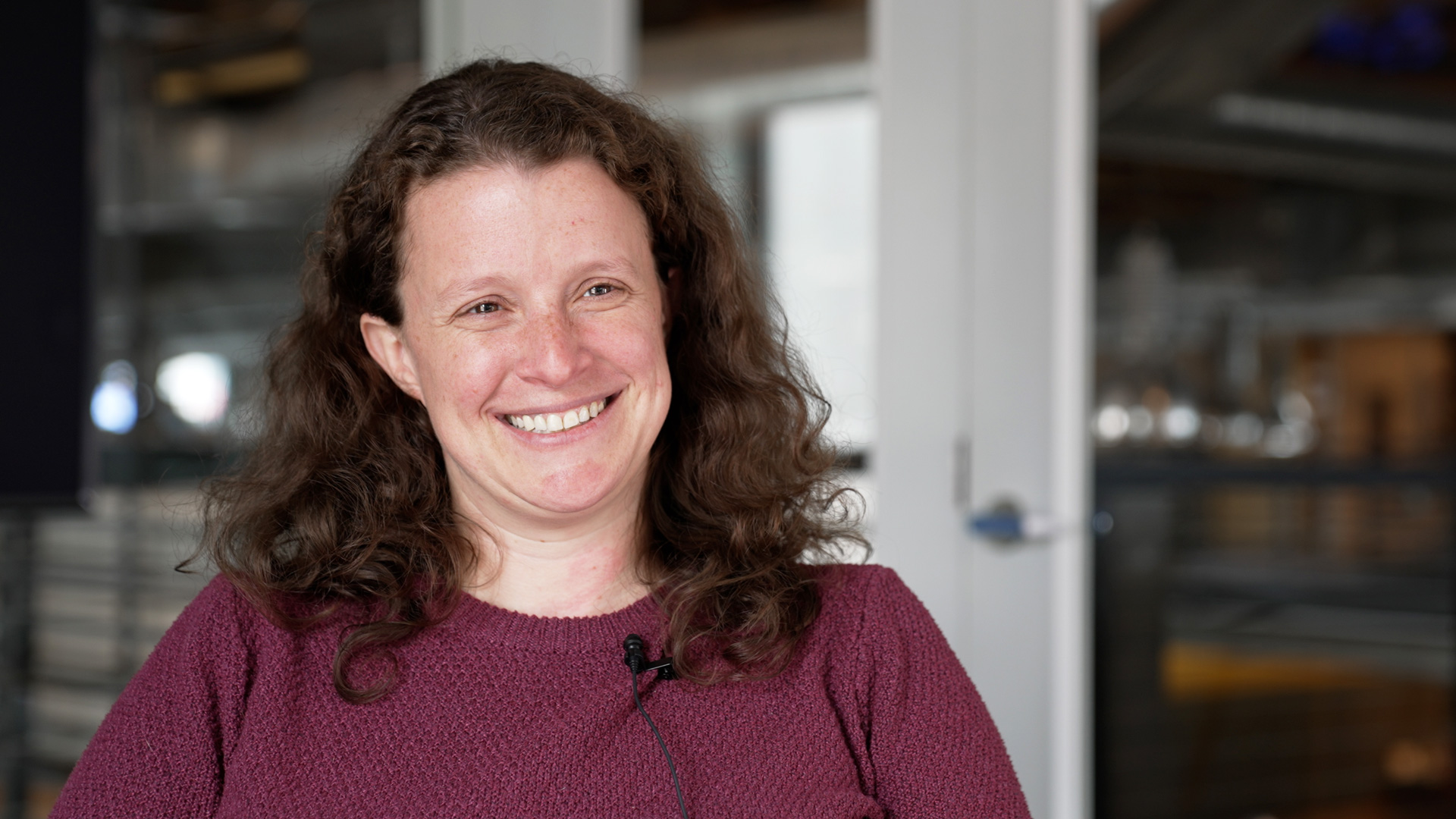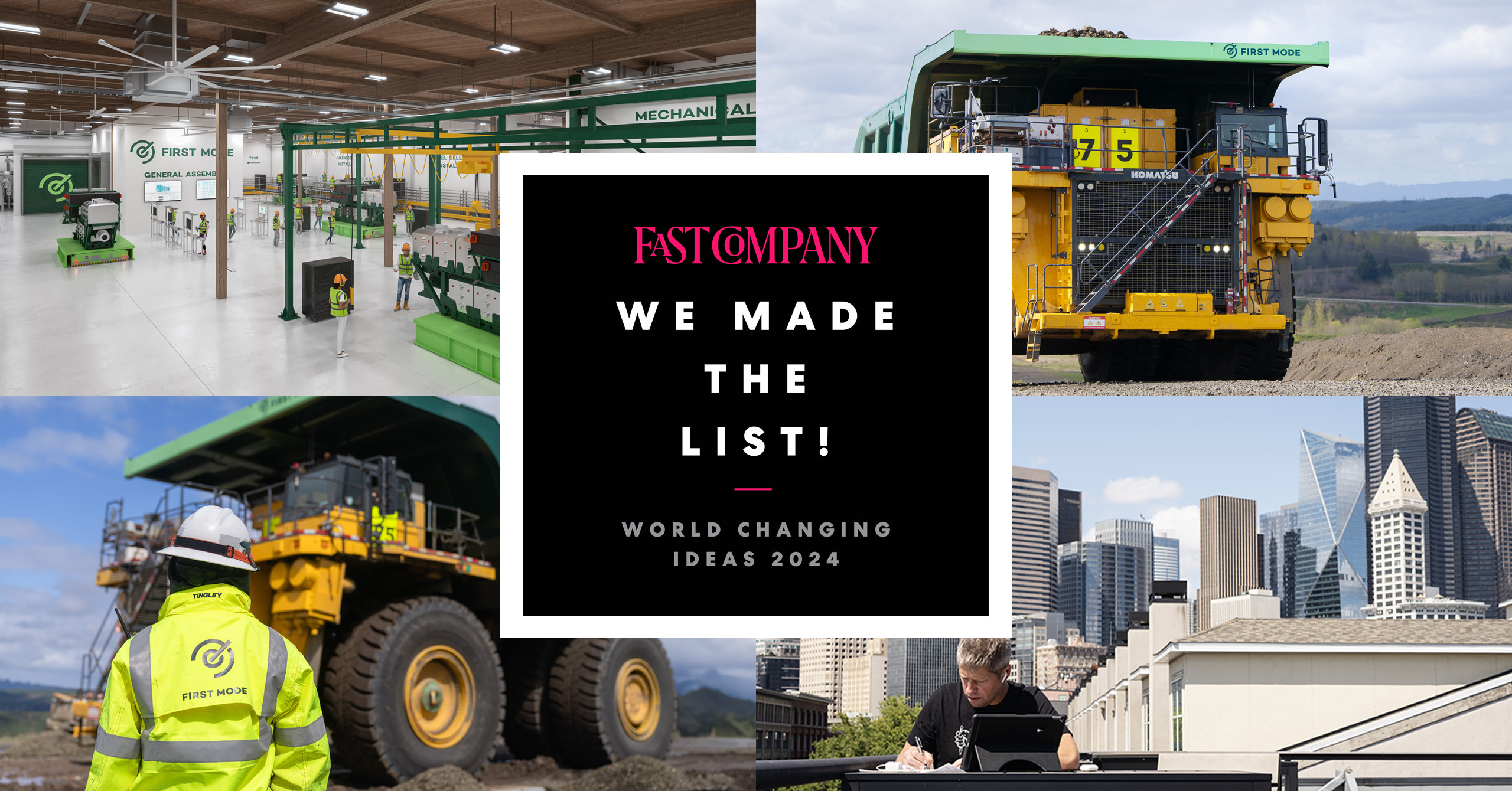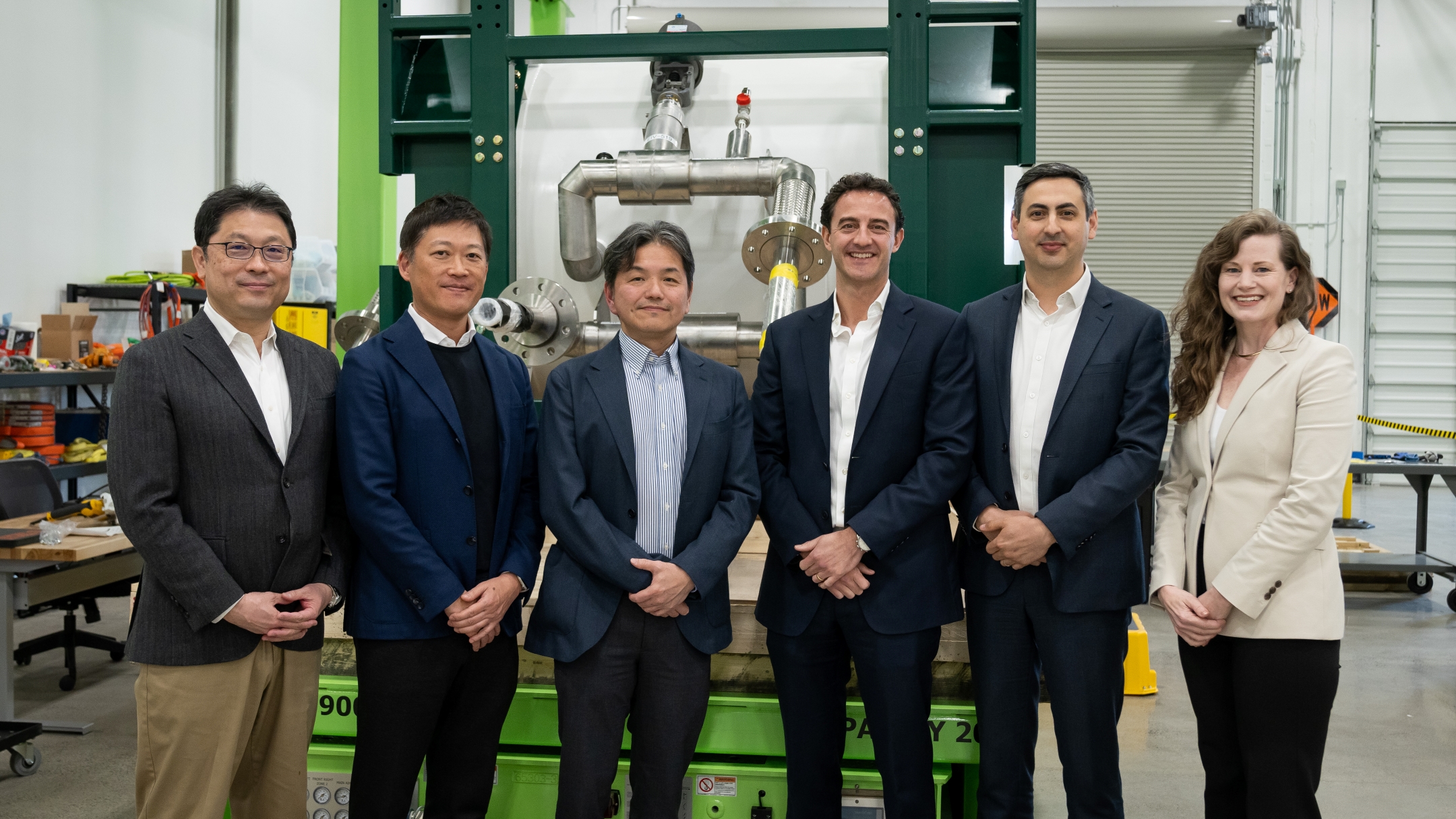With the recent launch of the world’s largest zero-emission vehicle, powered by a two-megawatt hydrogen fuel cell and battery powerplant developed by First Mode, our team is looking ahead at the next high-impact problems to be solved in clean technology and sustainability.
As we continue searching for exceptional engineers to join our team and help us build the barely possible to enable a sustainable future, we spoke with Maggie Scholtz, co-founder and VP of Engineering at First Mode, to understand what makes First Mode’s work a unique opportunity for engineers of all kinds; discuss the importance of having female leadership at the highest levels of an engineering organization; and hear what she believes is the single best thing about the First Mode culture.
Can you share a bit about engineering at First Mode and what kind of organization we’ve worked to build here?
Maggie Scholtz: One of the things I’m proud we’ve been able to do, not just within engineering, but with all of the people at the company, is to build up a team that’s really diverse — and not only diverse in who people are, but diverse in the backgrounds they come from and the skill sets they bring to the team. What that does is offer many different perspectives to the work we’re doing. The things that we’re doing at First Mode are more or less are being done for the first time, so why would we expect to be able to say, “Let’s just do a modified version of what has been done in the past?”
Our team is not just built up of a collection of engineering purists. For example, I’m really excited that we have a human-centered design department within our engineering organization. Having this team as a part of engineering feels like an honest acknowledgment of the extent to which the people interacting with a thing that we’re developing impact what it needs to be. It provides balance to the many engineers who have built their careers by being fantastic at the physics of the work itself.
Why should an engineer consider working at First Mode? What makes this company a unique opportunity?
MS: One thing I talk to people about during our hiring process is the type of experience that you can get by coming into this company. Your contributions to the work that we’re doing aren’t just based on the degree that you have. We’re very focused on creating opportunities for people to join us and truly learn something new here.
I’m a mechanical engineer, and I know I’m going to learn about different things within mechanical engineering by working here. But I also want people to have the opportunity to learn about electrical engineering when they show up, or to learn about financial modeling, or to learn how to convince more fantastic, smart, curious, flexible people to come join our team.
It’s really important to me that everybody who we bring in exudes some of the core values that have made First Mode successful to date — curiosity, flexibility, humility, honesty, and community. And if I bring somebody into the company who has all of those values, and they join us as a mechanical engineer and they decide, “You know what? I want to learn about recruiting,” I would rather that person stay with us and be given the opportunity to expand into a new skill set, because we already know that their contributions to the company are baked into those core values they demonstrate.
What I don’t want to do is have people come in and feel like they’re siloed, or that there aren’t really opportunities for them to grow with us. Instead, we choose to invest in our people because our people are the reason that the work that we’ve been doing has been successful. Why wouldn’t we give those people opportunities to grow?
Tell me a bit about your typical day as First Mode’s VP of Engineering.
MS: The easy answer would be to say that I spend most of my day in meetings. But the more interesting part of those meetings is that I go back and forth between trying to understand the work that we have going on, the challenges that we’re facing in our projects, and the challenges our people are facing individually. Then I try to figure out how to solve those problems.
Any conversation that I have, at any given time while I’m here, is focused on one of those three areas. I don’t spend my day designing structures like I’ve done in the past; I don’t spend my day doing that deeply technical work. But I leave my days far more fulfilled than I did when I was doing that hands-on, detailed work, knowing that I’m helping enable others to be successful in what they’re doing.
Can you say a few words about the importance of having female leadership represented in an engineering organization, or in any organization?
MS: Role models of every shape and form, and not just female role models, are really important for people to be able to see, “Hey, that’s something that I can do.” When you’re a kid, you start off with this enormously creative mind, thinking that the world is your oyster. Then as you start to grow up, mental barriers can start to form as you begin to notice that some paths seem less open to you than others.
In some ways I feel like I cheated a little bit in getting to where I am today, because I grew up in a household with two parents who were engineers. Both my mom and dad were engineers, and both of them were excellent engineers. When I decided that I wanted to be an engineer, I did not consider the possibility that I could be going into a field that had any different representation than what I had in my household.
It wasn’t until I got to college, and I saw the ratio of women to men in my mechanical engineering department when I was studying to get my degree, until I tried to join some of the clubs at my school, that I saw and experienced some of the dismissive nature that can create a little bit of that boys’ club feeling in engineering.
So being a female engineering leader is one way in which we can keep these barriers from forming in young people’s minds. Just my presence in this role means that somebody can look at me and keep their minds open to the possibility of doing the same thing one day. It’s not about getting the idea that you can do something by seeing a role model, it’s about not getting the idea that you can’t do something.
The more that we can have a diverse set of role models that represents the diverse population that we have in this world, the fewer barriers people are going to feel constrained by.
What gets you most excited about First Mode’s potential?
MS: First Mode has stumbled onto a profound opportunity. We started the company with a group of people who we knew worked well together and were able to solve complex problems from first principles. Our power is in our ability to look at these enormous problems that have never been solved before and break them down into subcomponents in a way that lets us figure out what the problem is — and then find a solution.
In growing from 11 co-founders four years ago to more than 200 individuals today, the most important thing has been to retain that ability to break a problem down to its essentials. From there, it’s simply about applying our team’s sheer brainpower to such challenging problems as figuring out how to reduce the amount of carbon emissions on the planet.
I have worked at a few different places in the past, and I’ve worked with some very smart people, but I don’t know that I’ve ever been able to say, with anywhere near the amount of confidence that I can right now, that I know that what I’m doing and what my team is doing is important. It’s incredibly important to be doing what we’re doing right now, and so it becomes equally important that we’re able to build up our organization and successfully support it in solving these kinds of problems.
What’s the value of bringing a systems-level approach to the clean tech industry?
MS: The value that First Mode brings to the clean tech industry isn’t necessarily about the fact that we have successfully developed a groundbreaking thing. The power that we have in clean tech is in taking this systems thinking and figuring out how to build out a whole ecosystem to address these types of problems in a variety of configurations.
The biggest challenge with clean energy systems is in resource management. Diesel, for example, is one of the most energy-dense storage systems that we currently have. There’s nothing we can do about the fact that battery systems are less energy-dense than diesel. Hydrogen is also not going to be as energy dense as diesel, which means that we have be as efficient as possible in how our systems operate around those batteries or that hydrogen.
One of the largest barriers that the clean tech industry has had is in bringing the cost of a new system down far enough that someone can compare the diesel generator that they’ve been using for decades to a battery system, or hydrogen fuel cells, or anything else. At the moment, those new systems cost far more than what most operators currently have, so it’s hard for them to see why they would want to make a change.
But right now, there is increasing government and shareholder pressure on companies to invest in bringing down the cost of these newer, more sustainable systems. The superpower that First Mode has is in being able to look at a whole system and make some really intelligent choices about what each piece of that system should be, because what happens when you stitch those together is very important to your end result. Many industries have spent the last hundred years or more being able to make each of those individual decisions completely independently. We’ve used the resources on our planet to the point where we can’t do that anymore.
What is the best thing about First Mode’s culture?
MS: One of my favorite things about our company’s culture is being able to walk up to literally anybody that I might bump into in the office, and ask them about something that they’re interested in, and just get passion and curiosity. Here it is impossible for me to talk to somebody that I can’t learn something new from. I know that, and our CEO knows that, and the people who help clean up at the end of the day know that.
The fact that we’re all trying to do something new together means that everybody has a role to play. Everybody has a contribution to make. Ideas can come from all different places, and people here are just interested to learn, and excited to tell you about something they’ve learned. I really enjoy being able to just talk to the people on our team — I don’t walk away from any conversation with anybody at the company without having learned something new.




